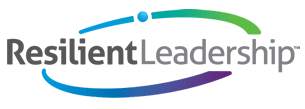
Feeling Overwhelmed by Change?
STAY CALM, STAY THE COURSE, STAY CONNECTED
Change is a fascinating phenomenon. While some leaders eagerly embrace it, others fear it or are at best, reluctant champions. Take, for instance, the upcoming solar eclipse that is capturing the attention of people across the United States. While many view an eclipse as a remarkable celestial event, not all shared the same enthusiasm. For example, some religious sects promote the idea that a solar eclipse is a warning from God about colossal changes leading to the doom of civilization. Same event-different interpretations. What is the lesson for leaders?
A well-informed leader adeptly navigates change with thoughtfulness, minimizing resistance fueled by anxiety, and ensures a smoothly communicated transition.
How is this done?
- First, maintain a less anxious presence. Leadership is primarily an emotional process. Before “doing” (see below), it’s important for you to work on your “being.” Your level of inner calm and self-command sets the tone. To achieve inner calm, some leaders choose exercise, while others choose meditation, prayer, or reflective reading and journaling. This essential first step communicates calm, increasing the effectiveness of the steps below.
- Clarify what remains unchanged. Amidst the excitement of the eclipse, many people were certain of the constants in their lives. Sunrise, sunset, and gravity weren’t changing. Similarly, as a leader, in the midst of change, communicate to your team that your organization’s core mission remains steadfast. What's evolving is the approach to fulfilling your mission-driven values in an ever-changing world.
- Foster open dialogue about the change. Recognize that change can evoke uncertainty and fear. Engage your team in repeated and frequent fact-based conversations that address both known and unknown aspects of the transition. Maintaining open lines of communication ensures clarity and helps ease the anxiety during the process. Communicate over and over to forestall rumors and reaffirm facts.
- Acknowledge the sense of loss associated with change. Understand that for many, change signifies leaving behind the familiar. As a leader, demonstrate empathy by actively listening to your people's concerns. Bridge the gap between the old and new by prioritizing genuine connection over the speed of implementation.
In today's rapidly changing world, adaptability is essential for leaders to remain relevant. Effective communication of guiding principles, coupled with meaningful engagement with your team, can mitigate skepticism and resistance. Embrace the inevitability of change, anticipate challenges, and navigate the transition by staying the course, staying calm during the transition, and staying connected to your people.

RL Trainer John Moyer contributed to this article. As a 30+ year veteran of education, John has trained and coached both student and adult leaders. Through his work primarily in education, John has helped leaders of all ages discover that leadership is influence- which starts with the leader becoming a less anxious presence. You can reach John at: johnm@resilientleadershipdevelopment.com.
The RL Coach Certification virtual training program is designed to encourage attendees to explore new perspectives in their own professional and personal development. This is accomplished during the 18½ hour training that includes input from subject matter experts and peer sharing around practical application of the RL principles being presented. Participants who complete the full program earn 38 ICF Core Credits and 2 Resource Development Credits. Note: Completion of the RL Coach Certification Program fulfills the ICF annual professional development 40 credit requirement.

